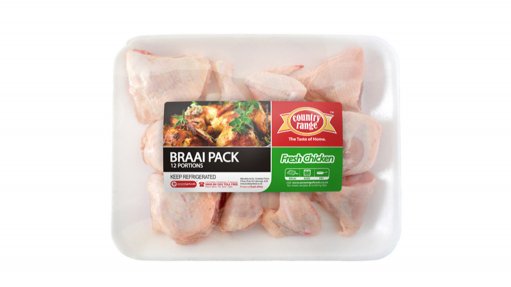
The Emerging Black Importers and Exporters Association of South Africa (Ebiesa) has bemoaned government’s increase in the poultry import tariff, saying it will have a negative impact on consumers and emerging black importers.
The import tariff increases were published in the Government Gazette last week. The tariffs increased to 62% from 37% previously on bone-in chicken portions, and to 42% from 12% previously on boneless portions.
Ebiesa explains that the increase in tariffs on frozen bone-in chicken portions will effectively lead to a 2 kg bag of chicken costing R162, compared with R129 previously, or a cooked chicken leg quarter portion being sold for about R36.95 instead of R29.99.
This is owing to South Africa’s local production accounting for only 70% of demand, while 30% of demand is currently imported.
“The country is in recession and consumers and small business owners need all the help they can get. The evidence is clear that these tariff increases will lead to price increases for consumers.
“It will damage the growth of many black poultry importers who are trying to build businesses, who already operate at a disadvantage to large poultry importers,” says Ebiesa chairperson Unati Speirs.
She adds that the problem lies with the local poultry industry and not the importers, with more investment in local production needed.
“Certainly, we are pleased that there is now a master plan for the poultry industry, which will address the many structural challenges and other problems facing the industry, but increasing the existing tariffs on imports is not going to fix the real sources of the local industry’s problems, which include operational inefficiency and reluctance to transform.”
Last week, nonprofit trade movement FairPlay welcomed the higher chicken import tariffs, but said it remained to be seen whether it would stem the tide of “predatory” trade and chicken dumping in South Africa.
The South African poultry industry had applied for an 82% tariff increase on both bone-in and boneless chicken categories.
The industry had already started rolling out a R1.5-billion expansion programme aimed at creating economic growth and jobs, based on its commitment to the master plan, confirmed South African Poultry Association broiler organisation GM Izaak Breitenbach.